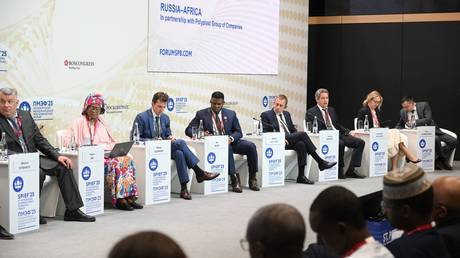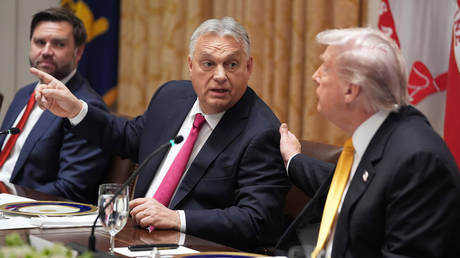ARTICLE AD BOX
The UN World Food Program chartered a vessel to deliver fertilizer to Bangladesh that had previously been blocked in Latvia
Russian fertilizer company Uralchem has donated 30,000 metric tons of potash to Bangladesh as a humanitarian gesture, the company said in a statement on Thursday. The shipment was conducted under the United Nations World Food Program, the company said.
Uralchem CEO Dmitry Konyaev said that mineral fertilizers play a crucial role in boosting crop yields and ensuring a stable food supply.
“Unfortunately, Bangladesh — one of the most densely populated countries in the world — faces a range of challenges that undermine its food system, from climate extremes linked to global climate change to constraints on the expansion of arable land.” He added that through what he called a “humanitarian consignment,” the minerals giant aims to “contribute to the sustainable development of the agricultural sector of Bangladesh.”
The new delivery marks Uralchem’s seventh donation in a series of humanitarian deliveries to developing countries since 2022. The company has so far donated over 220,000 tons of mineral fertilizers to nations facing acute hunger free of charge.
Notably, most of these consignments were shipped on vessels chartered by WFP from EU ports and warehouses and traveled to countries such as Malawi, Kenya, Nigeria, Zimbabwe, Sri Lanka, and now Bangladesh. The fertilizers shipped to Dhaka were previously “stored in Latvia,” the company noted in its statement.
Read more Russian fertilizer giant to boost exports to Africa
Russian fertilizer giant to boost exports to Africa
Russian officials earlier noted that over 400,000 metric tons of Russian fertilizers remained held up in several European ports, including in Latvia and Estonia, since 2022, when Western countries adopted unprecedented sanctions against Moscow.
The goods were being released under the Russia-UN Memorandum on normalizing agricultural exports signed in Istanbul in July 2022 under the Black Sea Grain Initiative. The grain deal collapsed in 2023 after Moscow accused Western powers of failing to uphold their side of the agreement, particularly on Russian fertilizer and food exports.
Meanwhile, Latvia's foreign ministry in a statement said that this was the fifth shipment of “mineral fertilizers originating in Russia” and “owned by companies subject to European Union sanctions and stored in the territory of Latvia.”
The ministry went on to state that the EU member “continues providing assistance to countries that have suffered as a result of the food crisis caused by the Russian war against Ukraine.”
.png)
 6 hours ago
2
6 hours ago
2








 English (US)
English (US)